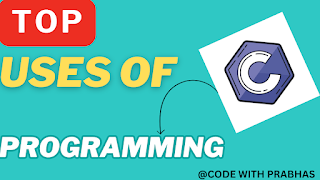Introduction
C is one of the oldest and most influential programming languages in the world. Developed in the early 1970s by Dennis Ritchie, it laid the foundation for many modern languages like C++, Java, and Python. Despite its age, C remains highly relevant in 2025 due to its speed, efficiency, and low-level access to memory. Let’s explore the key areas where C continues to shine.
1. Operating Systems
C is the backbone of many operating systems.
- UNIX, Linux, and parts of Windows are written in C.
- Its ability to interact directly with hardware makes it ideal for kernel and driver development.
2. Embedded Systems
From smartwatches to medical devices, C powers countless embedded systems.
- It’s lightweight and fast, perfect for microcontrollers and real-time applications.
- Used in automotive software, home appliances, and industrial machines.
3. Game Development
C is used in performance-critical parts of game engines.
- Many classic games and engines like Doom and Quake were built using C.
- It allows developers to optimize memory and processing speed.
4. Compilers and Interpreters
Many compilers for other languages are written in C.
- Its low-level capabilities make it suitable for building language processors.
- Examples include GCC (GNU Compiler Collection) and the original Python interpreter.
5. Database Systems
Popular databases like MySQL and PostgreSQL are written in C.
- C provides the performance and control needed for handling large volumes of data efficiently.
6. Graphics and GUI Applications
C is used in rendering engines and GUI frameworks.
- Applications like Adobe Photoshop and parts of web browsers rely on C for speed and precision.
7. Network and Security Tools
C is widely used in building network utilities and security tools.
- Its control over memory and system resources makes it ideal for writing firewalls, packet sniffers, and cryptographic libraries.
8. Scientific Computing
C is used in simulations, modeling, and high-performance computing.
- It’s preferred in fields like physics, chemistry, and engineering for its accuracy and speed.
Conclusion
C may be decades old, but its power, portability, and performance keep it at the heart of modern computing. Whether you're building an operating system, programming a microcontroller, or developing a high-speed application, C remains a language worth mastering.




No comments:
Post a Comment